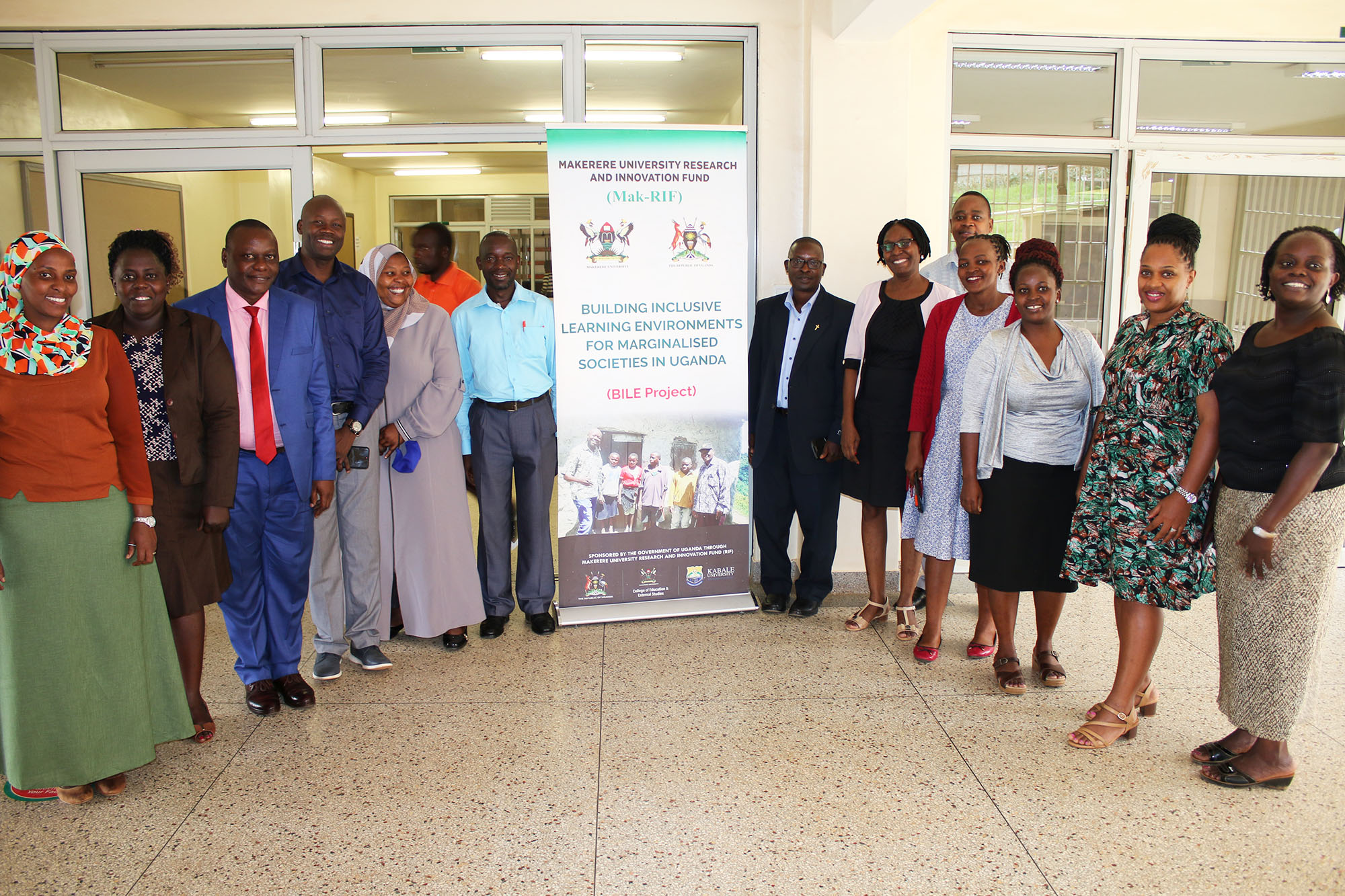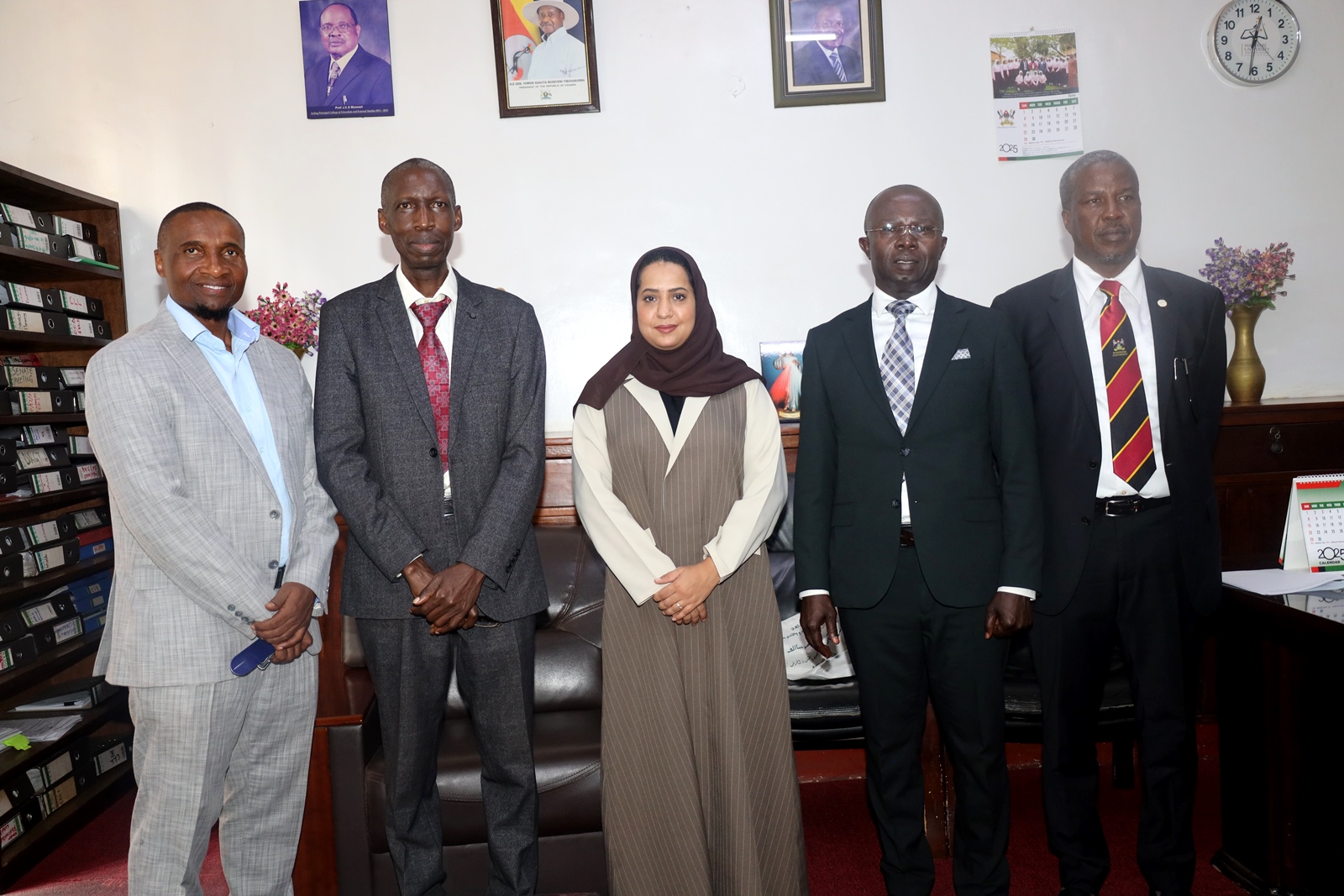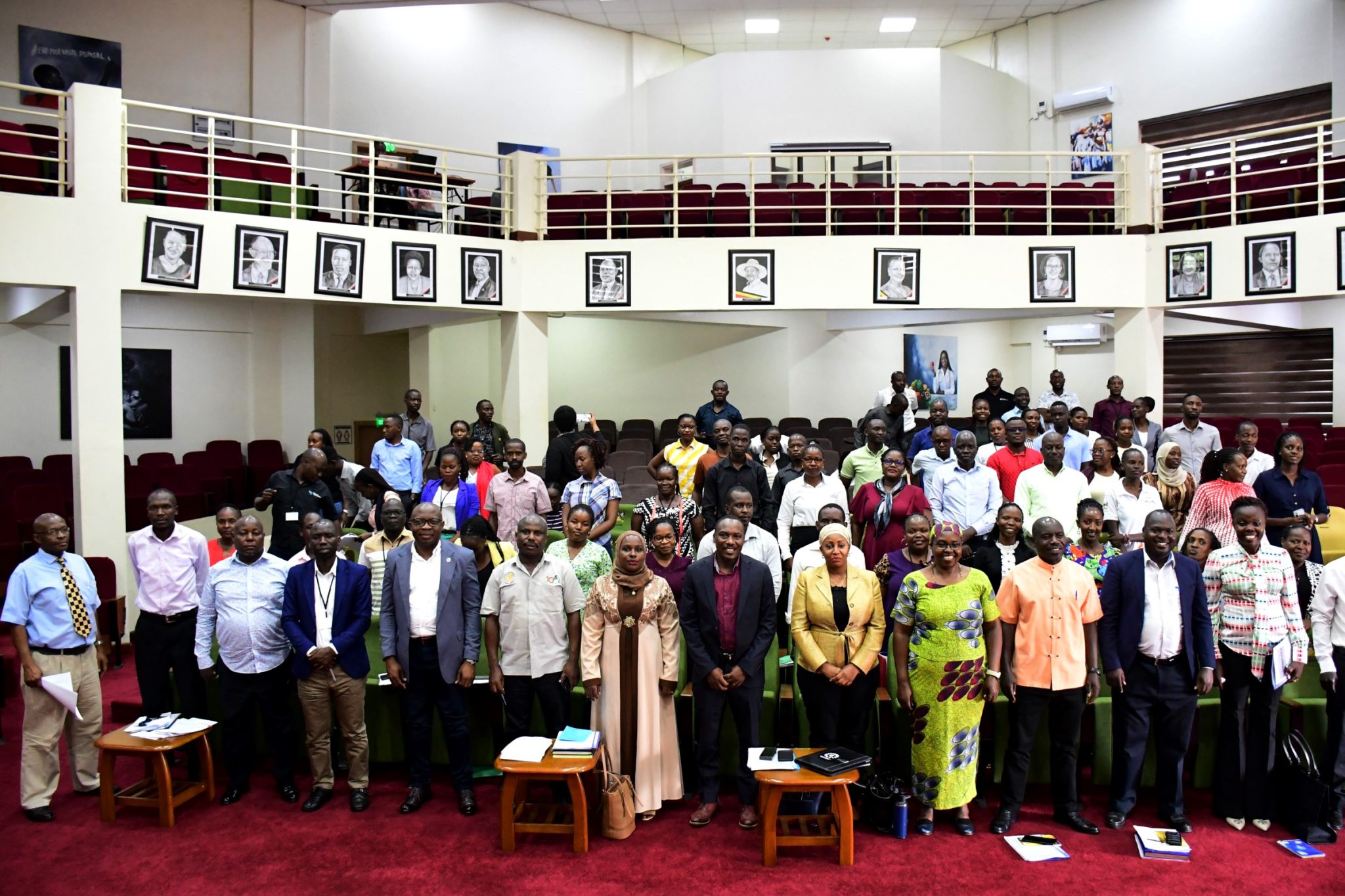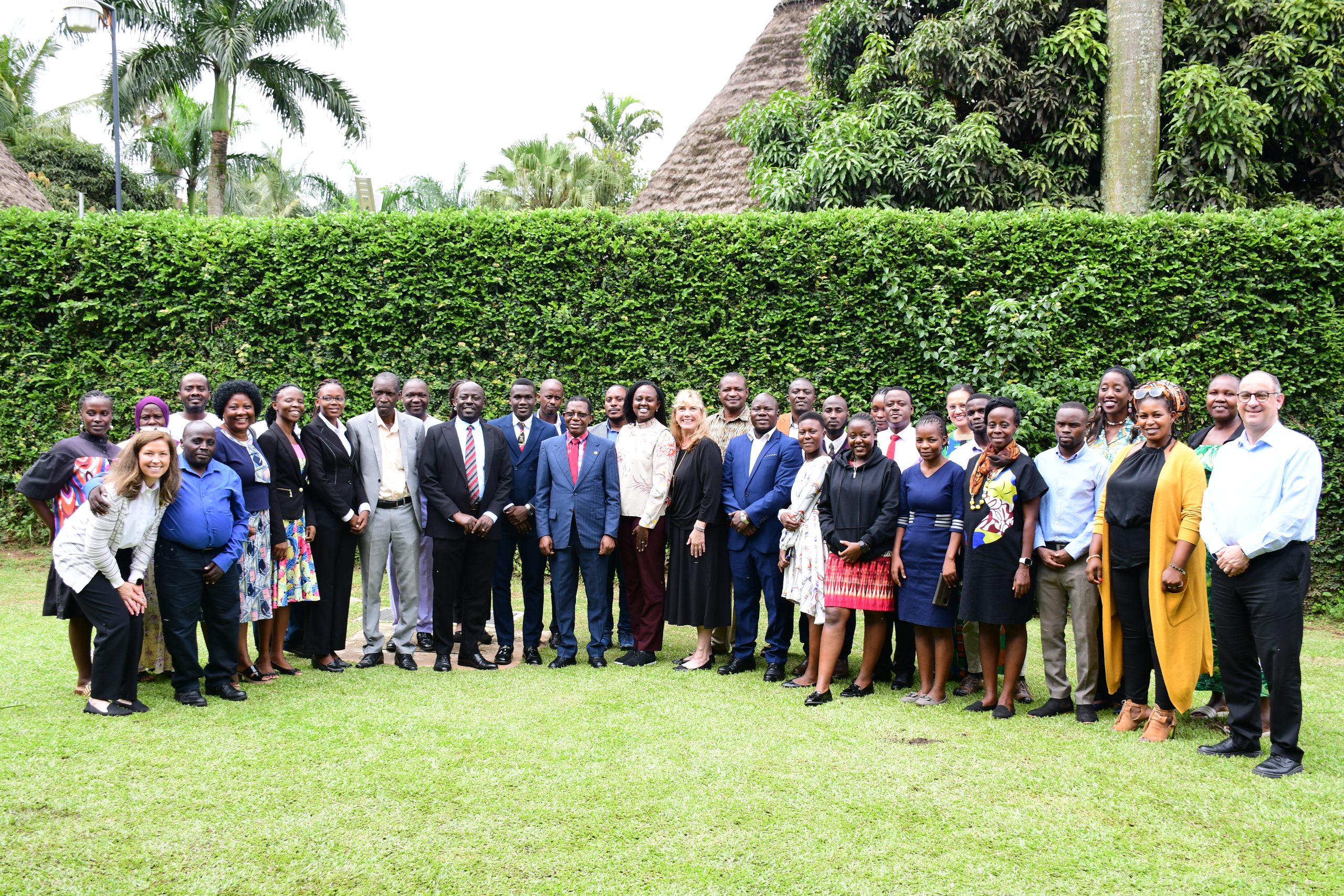Researchers from the College of Education and External Studies, Makerere University carried out a study titled "Educating for social justices among the Batwa indigenous communities: Building Inclusive Learning Environments (BILE) for marginalised societies in Uganda". The aim of the research was to advance possibilities of developing inclusive formal education for indigenous Batwa communities in order to minimize marginalization and build Sustainable Learning Environments.
On Wednesday 20th April, 2022, the researchers held a workshop in the AVU Conference Room at the School of Education aimed at disseminating their findings to the public. The research was sponsored by the Government of Uganda through the Makerere University Research and Innovation Fund (Mak-RIF)
In his presentation, the Principal Investigator of the BILE study Dr. Genza Gyaviira Musoke noted that the Batwa are the most marginalized group or tribe of people in Uganda. This, he said, can be attributed to the fact that they are routinely excluded from public life and denied their share of public resources. The Batwa are a people close to extinction, living on the peripherals of society numbering 6,200, which accounts for only 0.2% of the total population of Uganda.
“The bottom line of the study was looking at how we can create an inclusive and sustainable learning environment for the Batwa in line with SDG 4, so as to unlock their potential for economic development. Our study sought to find ways to achieve this without killing the Batwa indigenous culture” remarked Dr. Gyaviira.
The Government of Uganda has for some years tried to interest the Batwa in formal education and modern ways of living but with little success. Dr. Denis Sekiwu, a Senior Lecturer at Kabale University and researcher on the project said the researchers sought to find alternative ways of interesting the Batwa so as to make a difference in these results.
“Indigenous communities in Uganda, like elsewhere in the world, run a risk of getting extinct. These communities live in abject poverty with little or no education, which makes them vulnerable to external threats such as modernism. Building inclusive learning environments for these marginalized societies is necessary to enable indigenous communities help themselves out of these extreme disparate conditions.
“Our research sought to understand the magnitude of marginalization in terms of educational access for these communities. Although the Government introduced Universal Primary Education (UPE) policy in 1997, and Universal Secondary Education (USE) in 2007, with the aim of providing equal access to formal education for all learners in Uganda, participants of the study identified multiple challenges that shut the door to formal education in the face of the Batwa children” noted Dr. Sekiwu.
He said that these range from social, economic and environmental challenges such as isolation and marginalization, defamation and being stereotyped at school, among others.
"The Bakiga children say that Batwa children are dirty, they wear cheap clothes that look like rags and make them shabby. This kills the morale of the Batwa children." Dr. Sekiwu said, adding that "They (the Batwa children) often see school corrective measures as a deliberate punishment directed at them."
Dr. Sekiwu concluded by noting that we the stakeholders must be agents of the change we want to see in the Batwa. “Change must begin with us."
Dr. Nina Olivia Rugambwa, a lecturer in the School of Computing and Information Science at Kyambogo University and a co-investigator in the BILE project, presented the Indigenous Research Methodology that guided this study. She emphasized that the methodology used is unique to indigenous people’s research and it is informed by the principles of ontological relationality, epistemological reciprocity, and axiological reverence.
Dr. Rugambwa, who is also a specialist in indigenous knowledge systems and information seeking behavior, said that the study data was collected using talking circles and group conversations. “Participants were recruited into the study through relational sampling. The techniques were unique to Indigenous Research Methodology” she said. “The study complied with Indigenous Research ethical principles of respect for the study community, their animals, and the environment, reciprocity, objectivity in knowledge generation, and protection of the community from harm.”
Dr. Francis Akena Adyanga, a Senior Lecturer at Kabale University and researcher on the project said “Batwa children argue that they often feel isolated and marginalized while at school because the other children (who are non-Batwa) often call them undesirable names because of their being different.
“Poverty and starvation are major challenges to educating Batwa children. For example, some Batwa learners only come to school during time for porridge and eating lunch. When they finish eating meals, they disappear from school never to come back until the next day. Also, Batwa children have been forced to stay in villages to look for income to support their homes instead of embracing the ‘painful and fruitless’ formal education” he added.
Furthermore, Dr. Akena, in his presentation pointed out that there is phobia and stereotype ascribed to certain Batwa knowledge and practices. Some teachers have vehemently resisted integration of most Batwa cultural practices and livelihood into formal education.
He mentioned that one of the teachers he interviewed said "Well, I hear people talk of including Batwas’ knowledge and certain life skills such as making bows and arrows and fire making. I really do not agree with it because this can cause injuries when the Mutwa disagrees with another child and picks his bows/arrows to fight. Where do you get police or the army to stop them? These people are so uncivilized, with low mental capacity to reason things out like human beings. For me, I don’t want to be a peacekeeper in my classroom because I am here to teach and not to break up violent fights with weapons."
Participants in the study called for the documentation of Rutwa native language into the mainstream education curriculum. A male elder asserted that “If our children are to study in those schools, our language should be written down and used in teaching. They [government] should train the teacher to teach it to our children and those of other communities. This will ensure that our children learn alongside other children”.
The study revealed a number of negative stereotypes that exist among leaders, especially the teachers who interract with Batwa learners. These stereotypes affect their ability to teach and as a result affect the success of the education of the learners.
Recommendations of the study
The study recommended that Batwa indigenous Knowledge be integrated into formal/modern education through the promotion of inter-cultural dialogue, introduction of inclusive education and accommodative pedagogies and thought imparting life-skills education among the Batwa children.
The study also recommended that stereotypes and cultural biases against the Batwa be denounced and instead, an accommodative pedagogical approach be adopted. Creating awareness about the importance of formal education among the Batwa parents, leadership and elders’ councils was also cited as way of addressing inclusivity of the Batwa children in the education system.
The BILE study also recommended that Batwa communities be sensitized about the importance of investing in modern agriculture as a source of livelihood and income generation. With good income, Batwa parents can ably support their children at school.
Ms. Hajara Nalubega, a Senior Culture Officer at the Ministry of Gender, Labour and Social Development thanked the researchers for the good work and for taking particular interest in the plight of the Batwa people. She encouraged them to also document the positive aspects of the Batwa indigenous culture that should be adopted by our education system, so that this indigenous knowledge is not lost.
“As a ministry, we are currently working on a National Culture Policy and we would like to take into consideration some of the findings of this research to inform the policy. We have also developed a 5-year action plan for indigenous peoples of Uganda, which includes the Batwa.





